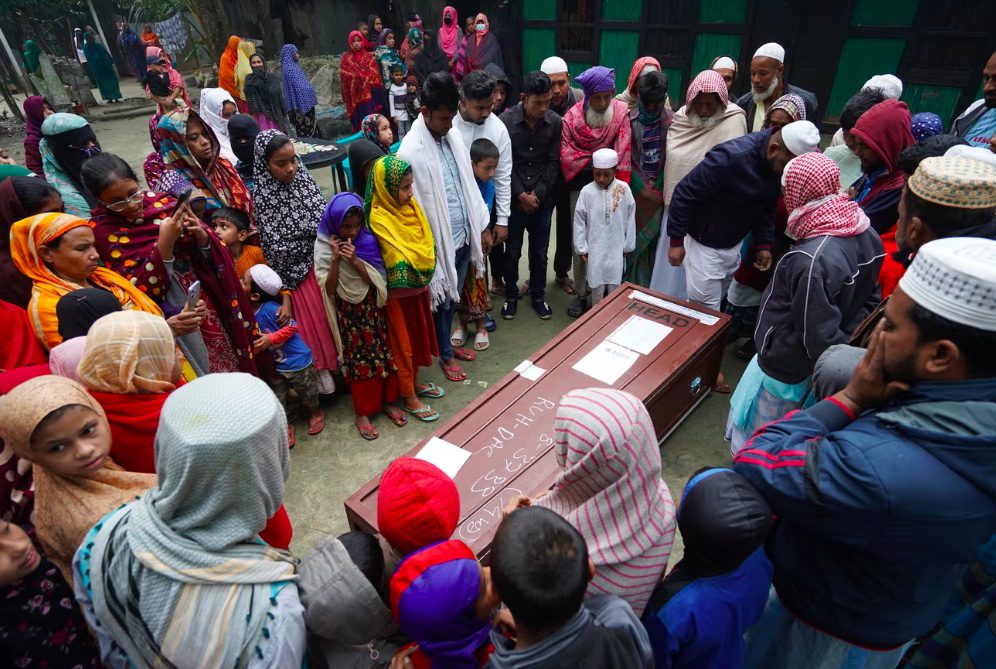
‘Why should fit young men be dying?’: migrant worker deaths spark concerns over Saudi Arabia World Cup
Campaigners warn Fifa over risk of death toll rising once 2034 preparations start, after Guardian investigation reveals most of the thousands of Bangladeshi workers’ deaths are unexplained.
Another World Cup will be tainted by worker deaths if Fifa fails to act, say rights groups.
An ambulance is weaving through the chaos of the cargo depot at Dhaka’s international airport, navigating a careful route through trolleys stacked high with boxes, men hauling rolls of cloth and trucks reversing into loading bays. It stops and, shortly afterwards, from between the towering piles of goods, a coffin is wheeled out. Then another. And another. On this one day, the bodies of 10 migrant workers are being returned from Saudi Arabia back home to their families in Bangladesh.
Among those present to meet the coffins is Khadija Begum, whose 35-year-old husband, Abdul Jalil Shaikh, had gone to work in Saudi Arabia at the beginning of 2023. He left with his family’s dreams on his shoulders and now is coming back in a wooden box, most of his 500,000 taka (£3,750) debt – the price he paid a recruitment agent for his job – returning with him.
The only official information his family have about how he died is a death certificate, and a piece of paper from the Bangladeshi embassy in Saudi Arabia taped to the lid of his coffin: “Cause of death: natural. Postmortem: not desired. Compensation: no.”
Most of the other nine coffins have an identical piece of paper taped to their lids.
Begum doesn’t understand what could have happened. She has managed to talk to some of his co-workers who said he died of a stroke, but without a postmortem, the family will never know what really caused him to die so suddenly. Or get any compensation from Saudi Arabia.
Begum has been left as the sole provider for their two children, with her deceased husband’s debt now her responsibility. “I’ve no idea what the future holds. I’m in big trouble and I don’t know what to do,” she says.
